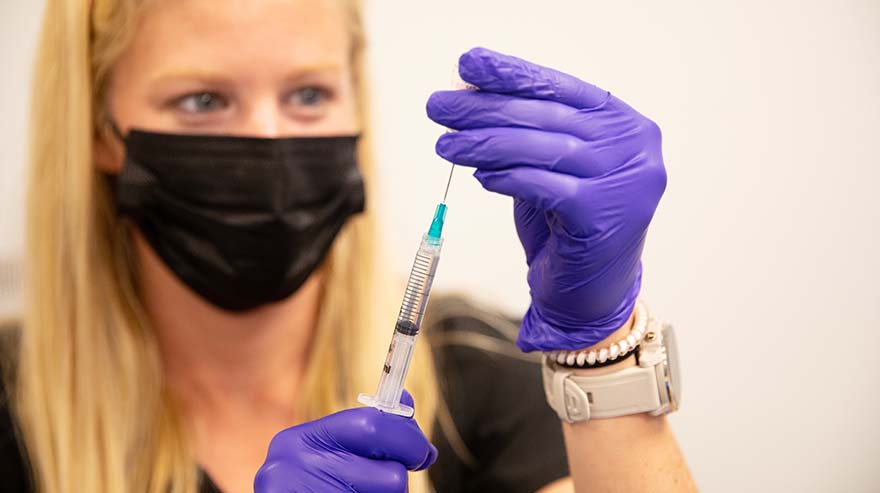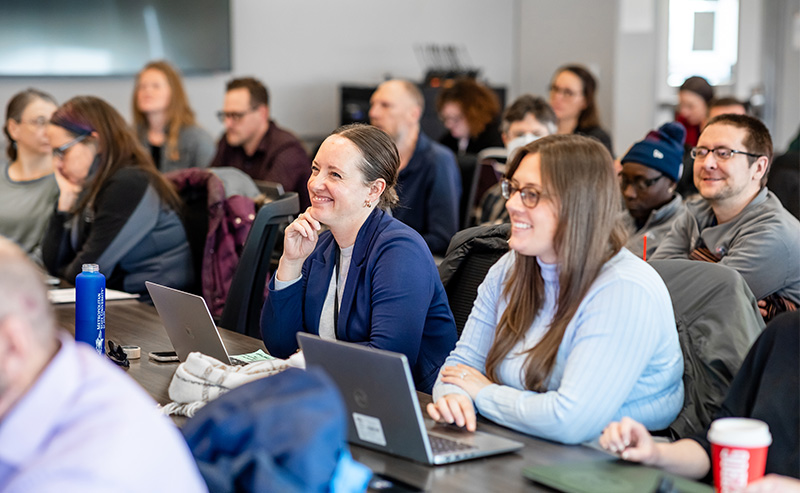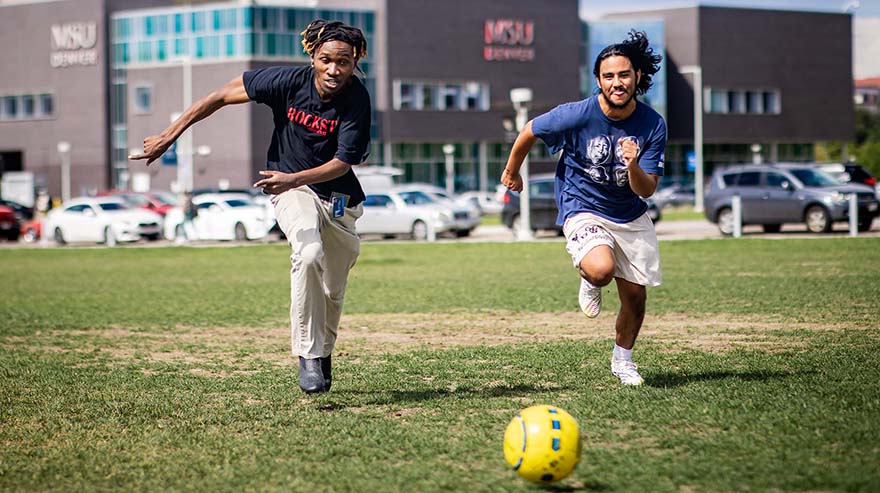With flu season approaching in the Northern Hemisphere, experts are urging people to get vaccinated now to reduce the risk of severe illness.
A new report from the Centers for Disease Control and Prevention, published Thursday, found that 2024 flu vaccinations reduced hospitalization risks by about 34% in the Southern Hemisphere. The findings are based on research conducted during flu season in Argentina, Brazil, Chile, Paraguay and Uruguay between March and July.
“No vaccine is 100% effective, but getting vaccinated still provides strong protection against severe illness, hospitalization and death, which is critical even if the match is not perfect,” said Ruben Zorrilla, M.D., medical director of the Health Center at Auraria.
Two birds, one stone: Get flu and Covid-19 vaccines at the same time
While the flu is on its way, Covid-19 is already circulating at high rates, and the CDC recommends Covid-19 and flu vaccines for everyone ages 6 months and older this season, with rare exceptions. At Metropolitan State University of Denver, faculty and staff members and students can take advantage of free vaccinations during the Fall 2024 Immunization Clinic through Nov. 20. The clinic, in the Tivoli Garage Lounge, is open for walk-ins on Tuesdays and Wednesdays from 8 a.m. to 4:30 p.m., with extended hours Nov. 12 and 13. If your schedule does not align with available Immunization clinic days or times, you can call the Auraria Immunization Office at 303-615-9997 to schedule an appointment.
To help you prepare for flu season, the Early Bird spoke with Zorrilla about the importance of getting vaccinated and how to stay healthy.
Q: What’s the best time of year to get a flu shot?
A: The best time to get a flu shot is in late fall, typically around late October. This ensures protection before flu season peaks, which is usually in the winter. However, getting vaccinated later in the season is still beneficial if you miss the early window.
Q: If people are healthy and not at risk of getting severe flu or Covid-19 symptoms, why should they get vaccinated?
A: Even healthy individuals can benefit from vaccination to protect themselves and others. Vaccines help prevent the spread of the virus; protect vulnerable populations like older adults, immunocompromised individuals or young children like the ones they have at home; and reduce the overall burden on the health care system. They can also reduce the likelihood of long-term complications from infection, like long Covid-19.
Q: Is it safe to receive the flu and Covid-19 vaccines at the same time?
A: Yes, it’s safe to get both the flu and Covid-19 vaccines at the same time. The CDC has confirmed that coadministration is safe, and some people may prefer the convenience of getting both done in one visit. If someone is concerned about side effects and spaces/separates them out, then we fear that it is a lost opportunity as the person may not or probably will not return for the other vaccination.
Q: Some people think the side effects of the Covid-19 vaccine are just as bad as the actual illness, and so they don’t get boosters anymore. What do you think about that?
A: While side effects from vaccines can occur, they are generally mild and short-lived (e.g., sore arm, fatigue, mild fever). In contrast, Covid-19 can lead to severe illness, long Covid-19 or complications, even in healthy individuals. Additionally, reformulations of the vaccines are designed to be more effective and enhance your immunity, particularly as the virus evolves. Skipping the reformulation of the vaccines leaves individuals more vulnerable to new variants, and the consequences of infection (such as long-term symptoms) can far outweigh the temporary discomfort from a booster shot.
Q: Besides vaccination, what are other ways to stay healthy and avoid flu and Covid-19 this fall and winter?
A: We recommend the following preventive actions:
- Hygiene: regular hand-washing with soap and water.
- Masking: wearing a mask in crowded or enclosed spaces, especially if transmission rates are high.
- Ventilation: improving indoor air circulation by opening windows or using air filters.
- Healthy habits: maintaining a healthy diet, getting regular exercise and adequate sleep and managing stress.
- Social distancing: avoiding close contact with sick individuals.








